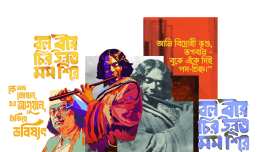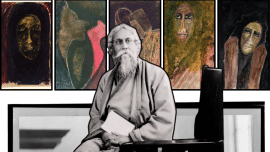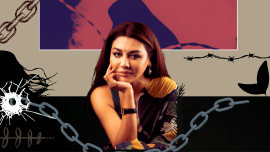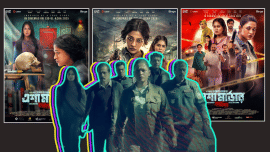Finished ‘The Summer I Turned Pretty’? Let’s find your next binge
3 October 2025, 05:54 AM
Entertainment
Blender’s Choice-The Daily Star OTT & Digital Content Awards 2024 / Why recognition matters for Bangladesh’s invisible storytellers
26 September 2025, 18:05 PM
Entertainment
The ‘puppet man’ who taught us to dream
1 September 2025, 03:00 AM
Entertainment
Kazi Nazrul Islam’s 49th Death Anniversary / Like an undying phoenix, the spirit of Nazrul lives on
26 August 2025, 18:05 PM
Entertainment
Emon Chowdhury on how he bet on ‘Baaji’
25 August 2025, 11:13 AM
Entertainment
There shouldn’t be a set standard for ‘wife material’: Sunerah
11 August 2025, 08:11 AM
Entertainment
Rabindranath Tagore’s paintings fell victim to Nazi purge of ‘degenerate art’
6 August 2025, 06:17 AM
Entertainment
Women are not spoils of war, stop letting your inner animals out: Jaya Ahsan
29 June 2025, 11:23 AM
Entertainment
A city gasps, a park resists: Panthakunja protest redefines civic action
26 June 2025, 18:05 PM
Entertainment
Review / ‘Esha Murder’ is the perfect detox from your Eid blockbusters
18 June 2025, 09:35 AM
Entertainment
The Shah Rukh Khan phenomenon: From stardom to superstardom
Through a diverse array of characters and compelling stories, the charismatic Shah Rukh Khan captured the hearts of people from various backgrounds and religions across South Asia. But how did he manage to resonate with such a vast and varied fan base?
10 September 2023, 04:30 AM
The world of Asian influencer farms: A dystopian reality
Few people in the Western world have heard of Ruhan, but the Chinese company has emerged as one of several ‘influencer incubators’, transforming the face of e-commerce in the country. Occupying a grey high-rise in a drab part of industrial Hangzhou, the operation can be seen as the gears that keep online influencers churning out content during hectic eight-hour daily shifts.
5 September 2023, 05:30 AM














